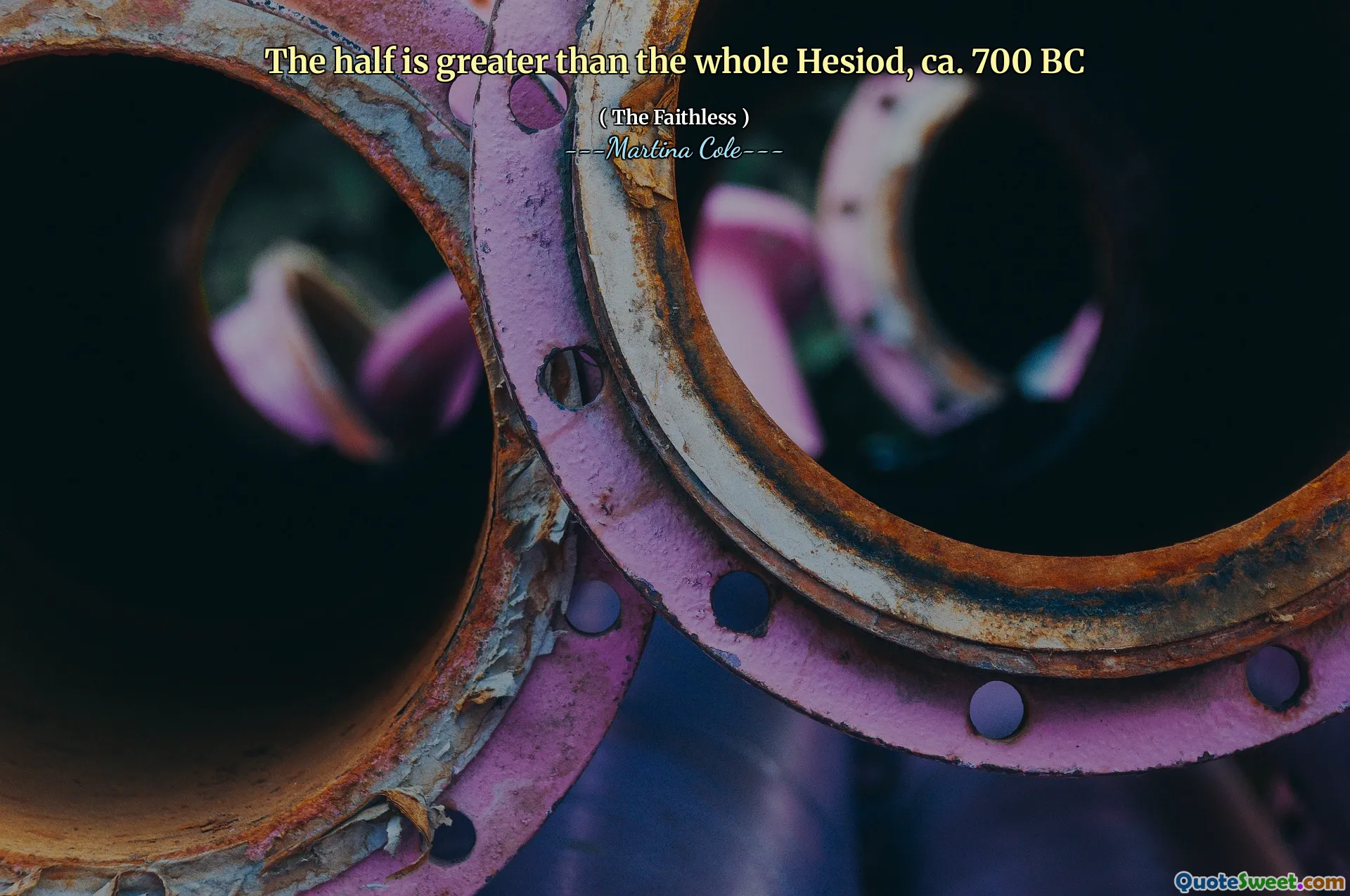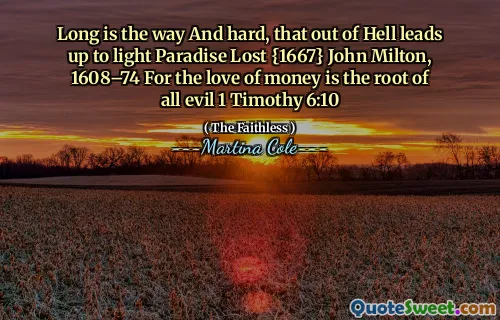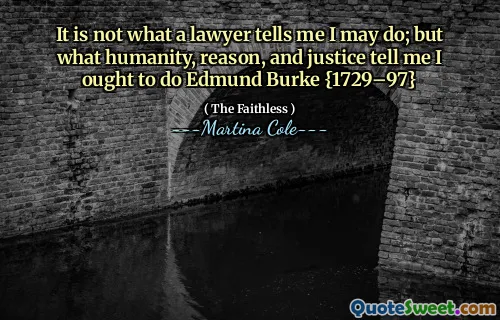
The half is greater than the whole Hesiod, ca. 700 BC
The quote "The half is greater than the whole," attributed to Hesiod around 700 BC, can be interpreted to mean that sometimes partial truths or experiences hold more value than complete ones. In life's complexities, there may be circumstances where understanding or insight derived from only a portion of the experience can be more impactful or revealing than the entirety. This idea resonates through various aspects of life, suggesting that segments or fragments can shape our perspectives more significantly than total completeness.
In the context of "The Faithless" by Martina Cole, this notion might relate to personal relationships, moral dilemmas, or the weight of secrets. The narrative could illustrate how characters grapple with partial truths and the consequences of their choices. Exploring this theme can reveal the deeper layers of human emotions and motivations, suggesting that sometimes, acknowledging a part of the truth leads to more profound realizations than confronting the whole, echoing Hesiod's timeless wisdom.










